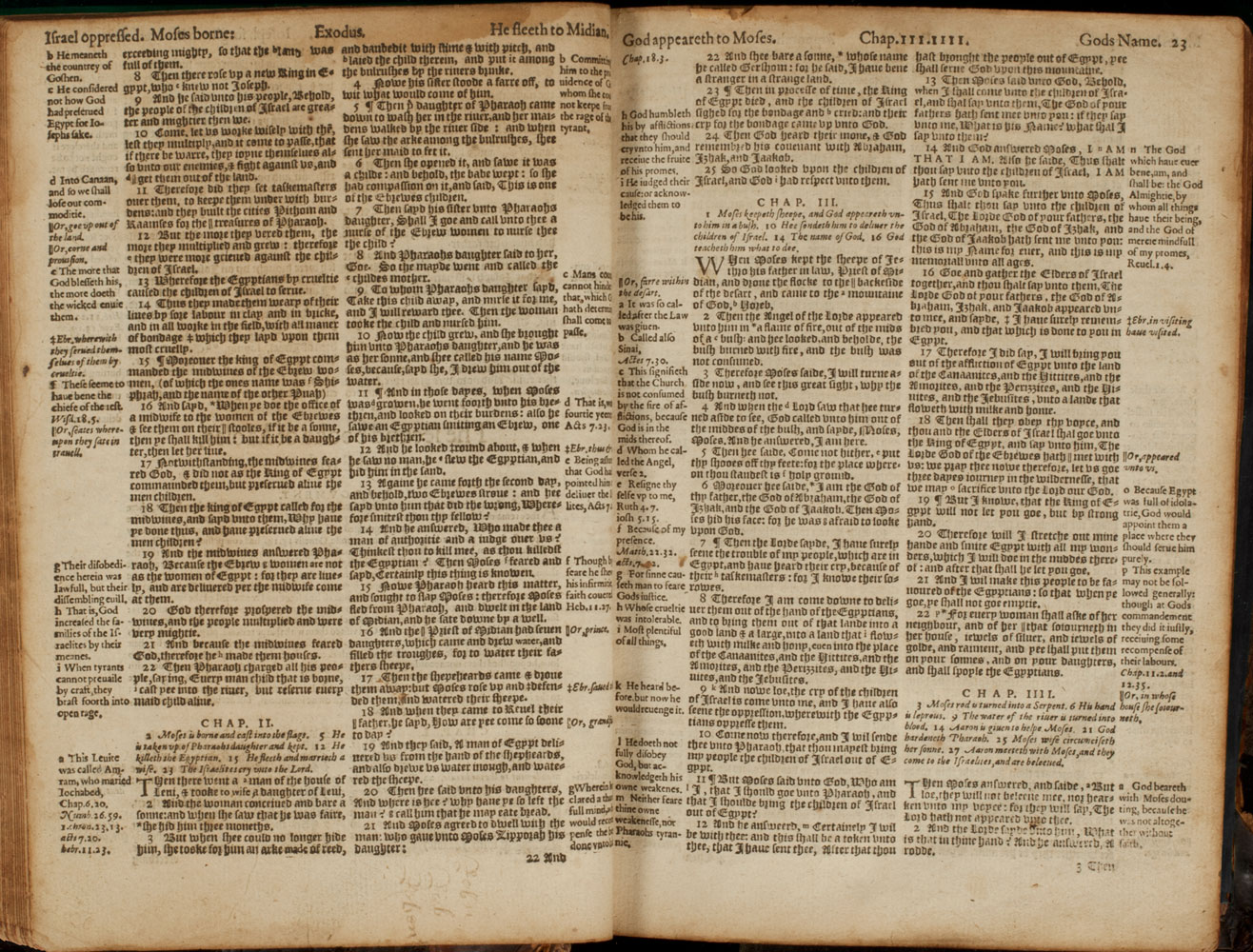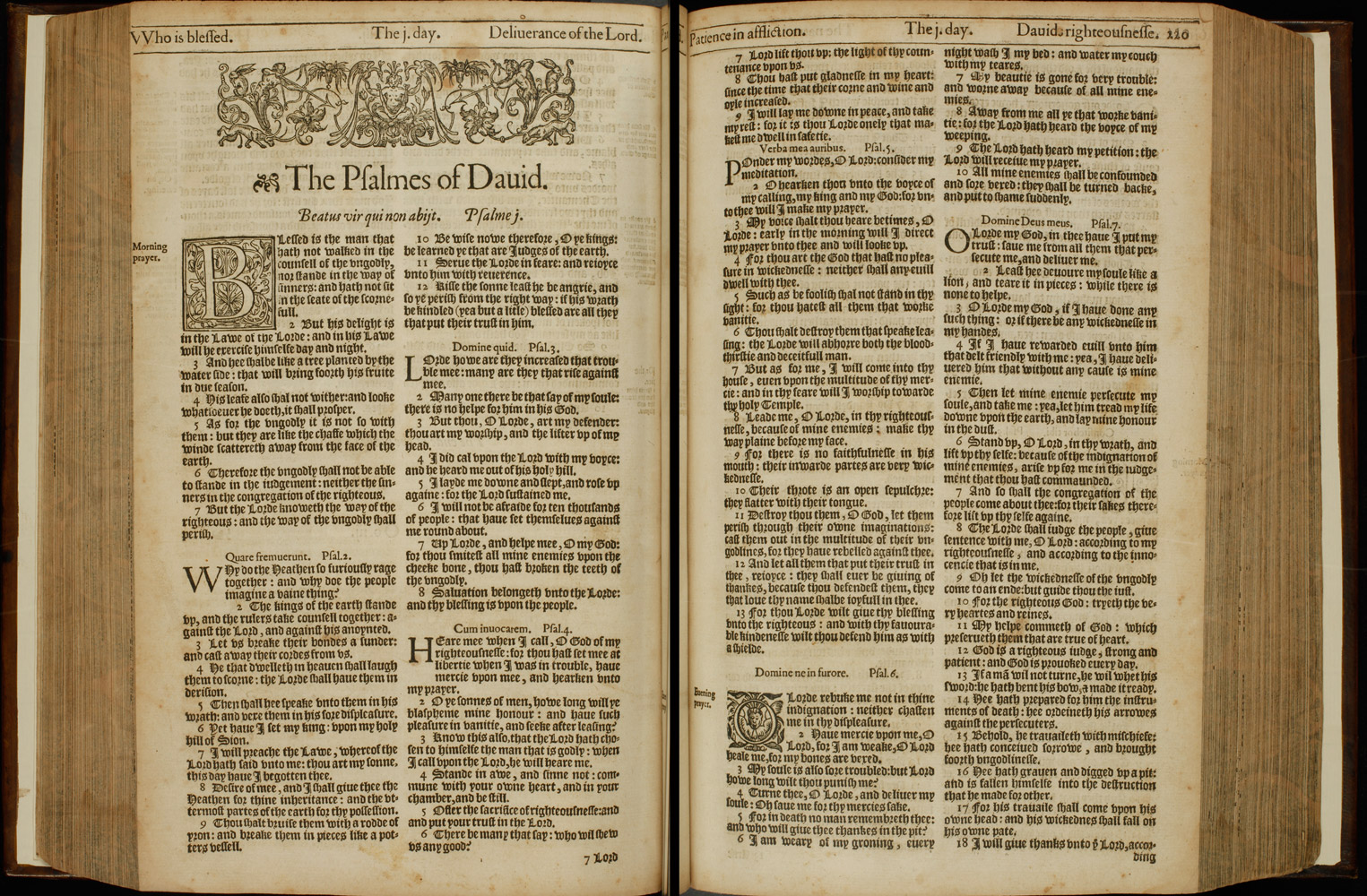Bible Wars: Competing Translations
During the reign of Mary I, Catholicism was reinstated as England's official religion. A group of Protestant scholars fled to Switzerland, where they began work on an English translation of the Bible. Their version appeared in parts between 1557 and 1560. The Geneva Bible, as this translation is called, included marginal commentary and annotations that expressed Calvinist ideas.
The Geneva Bible was popular not only with Scottish Calvinists and English Puritans, but also with a broad English audience. The marginal commentary made the Bible text more accessible to the average reader. But to leaders of the Church of England, the Geneva Bible was highly suspect. Word choices within the text, as well as the textual commentary, challenged traditional church structure and beliefs. In response the Church of England authorized a new translation project, one that would reflect conventional religious practice and omit the commentary. The Archbishop of Canterbury chaired a committee of scholars (many of whom were Anglican bishops) who produced a Bible in 1568. However, the translation, known as the Bishops' Bible, never gained the popularity of the Geneva Bible.
The Geneva Bible is often known as the "Breeches" Bible because of the word "breeches" (for "aprons") in Genesis 3:7. This copy displays one of the most controversial marginal comments, at Exodus 1:19. It indicates that it is lawful to disobey a king's commandments.
The Bishops' Bible was translated by Matthew Parker (1504-75), Archbishop of Canterbury, with the assistance of many bishops and well-known Biblical scholars. This particular edition contains a prominent typographical error in Psalms 37:29, which reads that "the righteous" (rather than the unrighteous) "shall be punished."

